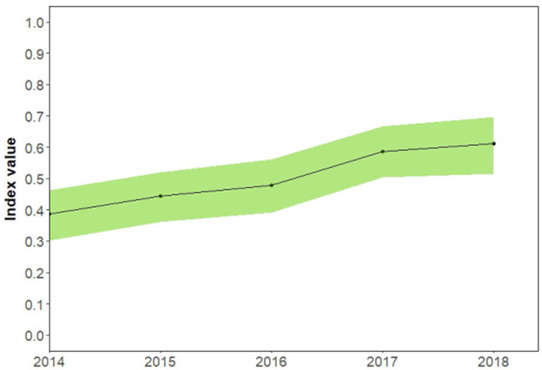Deforestation due to commodity production, most famously, palm oil, has gained increased public awareness over recent years. The commodity’s production has been a dominant force in wildlife declines seen in many countries, particularly in Southeast Asia. However, with the product’s wide use in everything from our favourite snacks to margarine, soaps and cosmetics, palm oil is an ingredient which is hard to avoid.

© Nanang Sujana/CIFOR
Fresh palm oil fruit from a village in West Kalimantan, island of Borneo.
Concerns over palm oil’s impacts have led to campaigns asking consumers to boycott palm oil, although such steps could inadvertently make the situation worse. Rather, a shift in mindset from avoidance to one of sustainability could prove more effective in terms of the environmental and social issues surrounding the production of the oil. Corporate policy transparency forms an important part of this sustainability, as it allows for investors to make informed decisions on which companies to invest in.
SPOTT (Sustainability Policy Transparency Toolkit), has been supporting the production of sustainable palm oil since 2014, and has since expanded into other plantation-based commodities like timber and pulp, and rubber. SPOTT assesses companies based on how well they have publicly disclosed their environmental, social and governance (termed ESG) policies. The score that a company receives is based on a comprehensive indicator framework which give points based on disclosure; for example, a statement of ‘no deforestation’ or ‘zero burning’ on the company’s website would contribute to a positive score.
To date there has been 6 years’ worth of company assessments, but until now, it has been difficult to ascertain which changes on SPOTT annual assessments are real changes in performance and which are artefacts. For example, it has been hard to know whether any observed change is genuine, or due simply to, say, changes in the indicator framework, changes in how indicators are assessed, addition of new companies or other reasons.
To help this, we developed the SPOTT Index. It measures how well the palm oil industry is performing in terms of disclosing its ESG policies. The SPOTT index controls for factors which may impact the annual score changes and provides a more accurate view of corporate disclosure over time. In a paper published in the journal Current Reviews in Environmental Sustainability we show how the palm oil industry’s policy disclosure since 2014 has been improving, likely reflective of events that have occurred in the industry.

The SPOTT Index shows how the transparency and disclosure of oil palm companies is changing over time. An increase in the Index represents an improvement in performance.
We see huge potential for the index, the first of its kind for tracking corporate disclosure, to be an important metric in understanding and incentivising sustainability of the commodity sector. For example, palm oil plantations cover 8.3 million hectares of Borneo alone, and a move towards sustainable practices over an area this large could have significant positive impacts for the biodiversity and people in this region and beyond. With continued support of SPOTT, the index can help incentivise sustainable production and consumption in the commodities sector.
